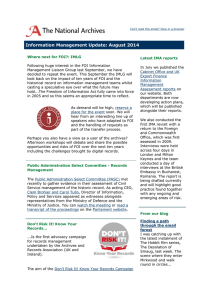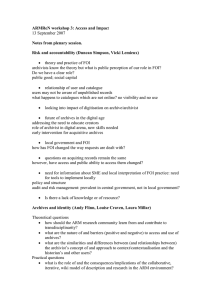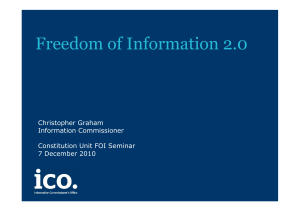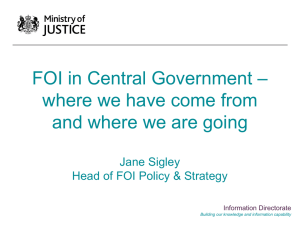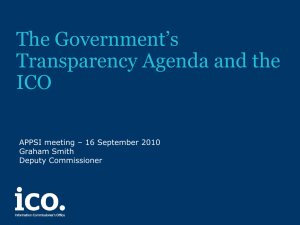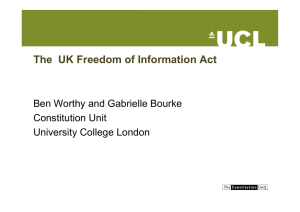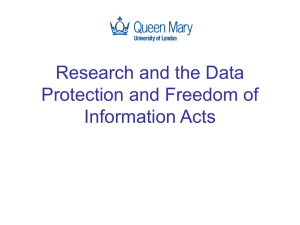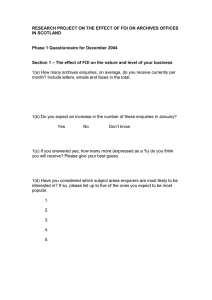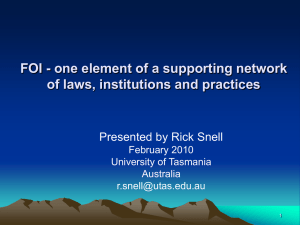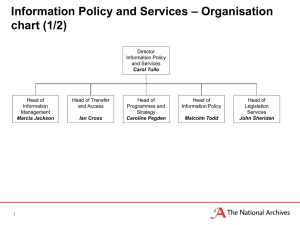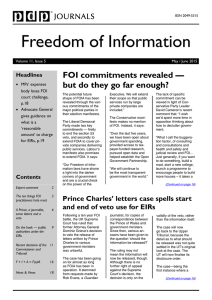Information Management Update: January 2015 Second phase in moving towards 20-year rule Information
advertisement
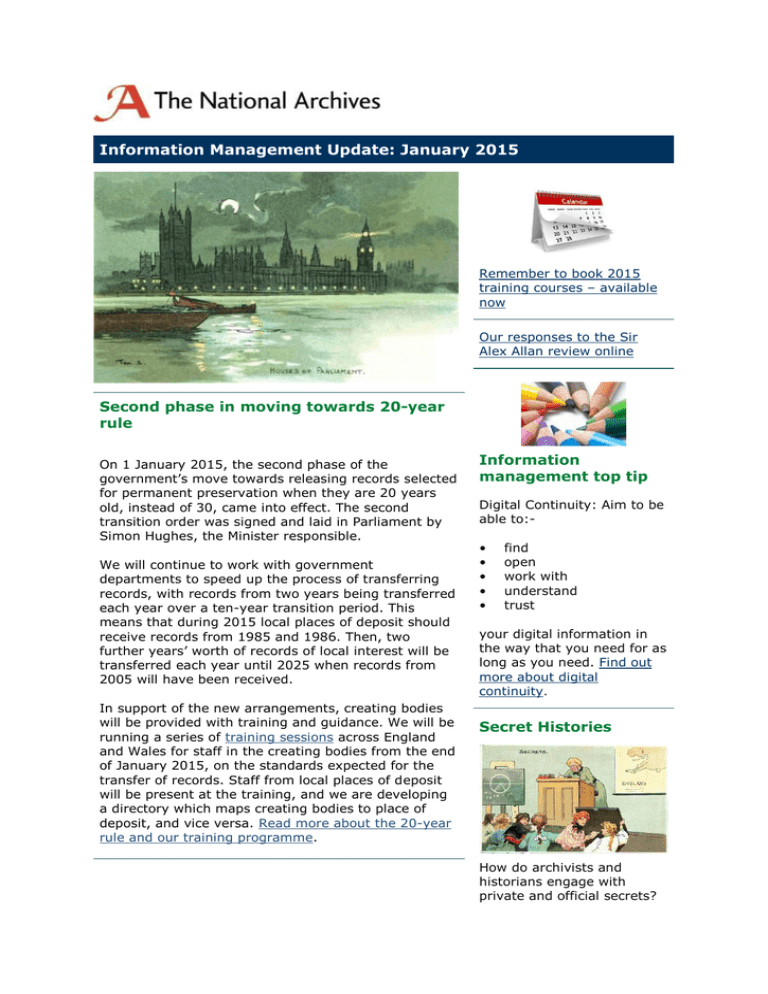
Information Management Update: January 2015 Remember to book 2015 training courses – available now Our responses to the Sir Alex Allan review online Second phase in moving towards 20-year rule On 1 January 2015, the second phase of the government’s move towards releasing records selected for permanent preservation when they are 20 years old, instead of 30, came into effect. The second transition order was signed and laid in Parliament by Simon Hughes, the Minister responsible. We will continue to work with government departments to speed up the process of transferring records, with records from two years being transferred each year over a ten-year transition period. This means that during 2015 local places of deposit should receive records from 1985 and 1986. Then, two further years’ worth of records of local interest will be transferred each year until 2025 when records from 2005 will have been received. In support of the new arrangements, creating bodies will be provided with training and guidance. We will be running a series of training sessions across England and Wales for staff in the creating bodies from the end of January 2015, on the standards expected for the transfer of records. Staff from local places of deposit will be present at the training, and we are developing a directory which maps creating bodies to place of deposit, and vice versa. Read more about the 20-year rule and our training programme. Information management top tip Digital Continuity: Aim to be able to:• • • • • find open work with understand trust your digital information in the way that you need for as long as you need. Find out more about digital continuity. Secret Histories How do archivists and historians engage with private and official secrets? Ten years of FOI It is 10 years since the implementation of the UK Freedom of Information Act 2000, an anniversary which has been noted by campaigners, journalists, Ministers and of course, the regulator. We have compiled a selection of blogs looking at important case law which includes MP’s expenses, a case that reinforced the public’s right to know how public money is spent. What is echoed throughout the decisions the Information Commissioner's Office (ICO) has highlighted is how these cases have impacted information release and led to more routine publications of datasets (open data). Similar cases are mentioned by the BBC and the benefits of FOI also noted by the Campaign for Freedom of Information; of course for the CFOI there is still a lot of work to be done and they point out the perils of public contractors (who are not subject to FOI). You may agree with the summary of the FOI Man. So what will happen in the next ten years? Will we even have a FOI Act? There has also been debate about whether FOI is here to stay for another decade or whether we could see the same benefits from proactive publication; again you may wish to defer to the ICO for views on this subject. The Gerald Aylmer Seminar, an event Hosted by the Royal Historical Society, the Institute of Historical Research, The National Archives and The British Library held on 27 February will attempt to shed some light on the matter. New Year highlights: file releases At the end of last year files were released from 1985 and 1986 which include papers from the Prime Minister’s Office and the Cabinet Office. These papers shed light on a number of events including the Westland crisis. You can also listen to our podcast to hear contemporary records specialists Mark Dunton and Simon Demissie discussing highlights from the latest release and read more about the files on our blog. This enewsletter provides updates from The National Archives and news relating to information management. Please feel free to share it with colleagues who may be interested, who can sign up for their own copies by emailing information.management@nationalarchives.gsi.gov.uk You are receiving this email because you are in a KIM-related role and we think this information management update might interest you. If you would like to remove your details please use the link below. We use an email distribution company to send out this enewsletter. We will not pass your data on to any other third parties. Please read our privacy statement for more information. Disclaimer: The National Archives holds no responsibility regarding the content of external sites. The National Archives, Kew, Surrey TW9 4DU, UK Contact us Unsubscribe or change your details Crown copyright 2015
